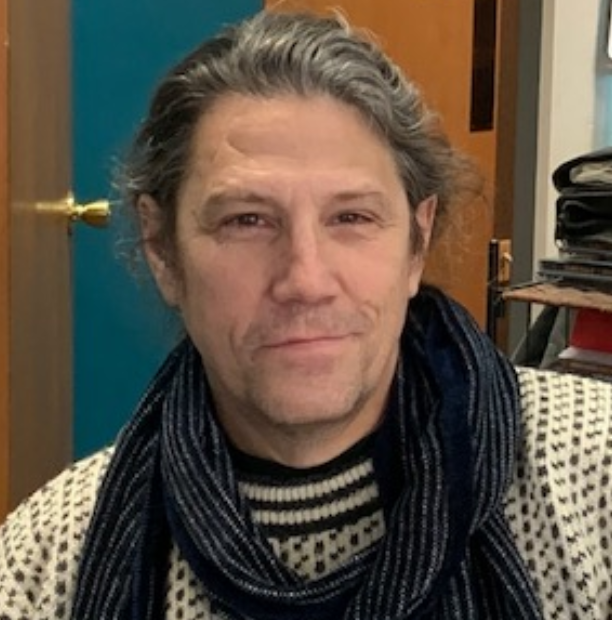Radio Kingston may be the closest thing to a commons that I’ve encountered in the world of radio. It’s a community-minded, noncommercial platform that lets the people of Kingston, New York, and the Hudson Valley, see and hear themselves on the air.
WKNY AM 1490 is not a raucous place of shock jocks, blaring ads, and ratings-driven Top 40 music, nor a place for dark conspiracy theories and hate-mongering. It’s a vibrant mix of music, conversations about all sorts of local concerns, and community storytelling.
The limited mix of formats in contemporary radio could easily lead you to conclude that there aren’t any serious, intelligent, caring, progressive, or creative people in your community. In October 2017, Jimmy Buff set out to change that for Kingston when he took over an aging commercial oldies station and set about working with the community to build a new type of radio-based commons. You can hear a longer version of this story on Episode #11 of Frontiers of Commoning, available here.

Jimmy Buff, Executive Director of Radio Kingston
Buff is an experienced on-air personality who, in the course of 30 years, had performed on-air at a major New York City rock station and a legendary Woodstock station. As the new director of WKNY, he welcomed the challenge to see how far community radio could go. Thanks to a single donor, the NoVo Foundation, WKNY has had the rare freedom to experiment and feature voices and formats not generally heard on local radio, without incessant fundraising or worries about weekly ratings.
The station’s programming has blocs of airtime for rock, pop, and classical, as one might expect, but also slots for polka, German sounds, and offbeat types of music. There are shows dedicated to the concerns of LGBTQ people, seniors, people of color, women, the local arts scene, mindfulness practice, Italian culture, the environment, and regional business.
Most of WKNY’s shows are hosted by ordinary people, not radio professionals. And yet many of the show hosts are natural talents born to live in front of mics, Buff reports.
During the pandemic, Radio Kingston has given regular updates on the local Covid situation. It has also hosted virtual concerts by local musicians and a “show and tell” event for over 50 “marginalized creatives.” The station’s website hosts a number of podcasts dealing with the concerns of young farmers, politics, cosmic topics, and personality-driven topics.
In short: the good citizens of Kingston and environs have their own radio venue to reach and interact with each other, creating a new sort of community and cultural space that is often missing. The station has shown, also, that community radio doesn’t have to be stodgy and amateurish, and certainly not soulless and frenetic like commercial radio. It can be exciting, authentic, unexpected, and diverse.
It’s ironic that a small local AM station is pioneering this kind of programming. Under the legal charter for US broadcasters – the Communications Act of 1934 – commercial radio stations are supposed to act as trustees for the public interest. Historically, in return for getting free use of the public’s airwaves – a business infrastructure worth billions of dollars – radio stations agreed to meet certain standards of public service. Most were never terribly excited about airing educational programming, public affairs shows, the Fairness Doctrine (giving people the right to rebut controversial statements), and free airtime for political candidates – but it was part of their legal mandate.
But even these modest requirements were swept away with broadcast industry deregulation in 1996, in the Clinton presidency. This epochal shift threw open the door to the national consolidation of hundreds of local radio into ratings-obsessed mega-networks like iHeartMedia. This is why radio has gone so bland and corporate these days. There is a premium on standardized formats, national advertising, and a slick commercial tone – and very little interest in distinctive local voices, local news, local talent, experimental programming, and other things that don’t maximize profits.
After only three years in its new guise, Kingston Radio is still a work-in-progress. But with the recent addition of a new antenna and legal authority to air its programming on the FM radio dial, WKNY is exploring some new frontiers in stewarding a local radio station as a commons.
You can listen to my podcast interview with Jimmy Buff here.






